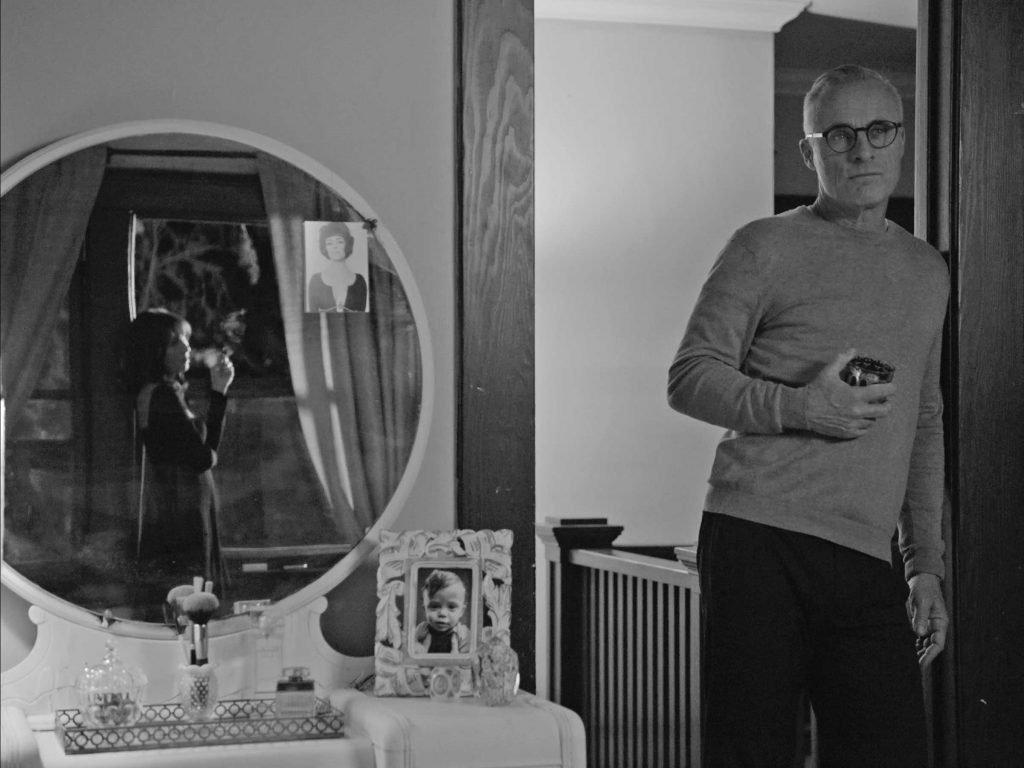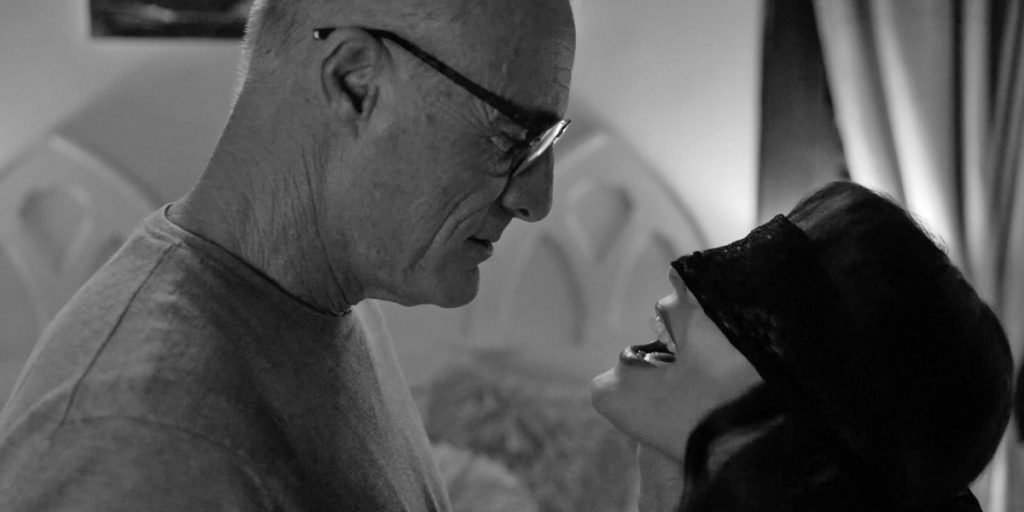Though it’s often acted and written like an uneven stage show, New Year nonetheless does well in turning a night of new beginnings into one of bitter endings.
New Year was directed and co-written by Nathan Sutton. Timothy V. Murphy plays Benjamin Pax, a successful playwright who lives in California with his wife and photographer Katherine (Elisha Renee Sutton). The married couple decide to celebrate New Year’s Eve with a gathering of friends, as they have plans to move to New York shortly after the holidays. What starts off as a simple, pleasant evening, however, slowly devolves into the deterioration of everyone’s already-fragile relationships. Unsavory secrets and hidden feelings towards one another make their way to the surface, and the end of this year threatens to be the end of multiple friendships and what little innocence these people had left.
The main theme of New Year is tackling the façade of hope, self-betterment, and harmony that often comes with New Year celebrations. We spend the farewell to a year telling ourselves that this new upcoming year will be one of greatness and a fresh new start, making usually-empty resolutions and somehow always believing – or at least pretending to believe – that this is going to be the year we actually make good on all that … and then when we don’t. We say it’ll happen the next year, once that comes around, or the next. New Year deconstructs that practice, both through its direct dialogue, like when Kat tells her son that no one really keeps their resolutions, and through the slow deterioration of these characters’ veils of harmony, which were already showing cracks from the beginning. As the film continues, the conversations become more and more thoughtful and uncomfortable. Idealistic dreamers come to grips with the harsher aspects of life and aging, those who believe their lives to be shaping up are given crushing wake-up calls, and the emptiness of a few characters’ lives is shown to be even deeper than they thought.
Ben is the character who holds such a cynical ideology right away, but the strangest part about that is how such a thing doesn’t appear to dour his spirits. If anything, he’s almost jovial in expositing unsavory truths and getting them out of everyone else. He’s practically smug about how ahead of the curve he is, showing no remorse for how his words or actions affect the people around him or those he works with. It gets to a point where his behavior turns ugly when someone doesn’t fall in line with that superiority complex, exposing his own vanity and hypocrisy. All of this comes to a head in the final ten minutes through a sick game invented by Ben, easily the best portion of the film: that’s where the writing and acting are at their best and where Ben’s despicability becomes truly undeniable.

A majority of New Year suffers from occasionally unpolished dialogue and sometimes-unnatural delivery on behalf of the actors. No one gives an outright bad performance, and there are several scenes where the actors thrive. But most of the cast have a lot of lines that sound like a rehearsal take for a stage show. For a good amount of the film, I wasn’t hearing real people talking to each other; I was hearing actors saying written lines. Everyone says a lot of different types of lines in a similar fashion, making the lines come across as a little artificial. It doesn’t help that the writing on its own, while occasionally very poignant, can be awkward at other times, sometimes sounding like the writers are stating their direct thoughts through character vessels. I am very forgiving when it comes to unsubtle dialogue, but it becomes a much bigger annoyance when it doesn’t sound authentic. And in a film like New Year that’s so focused and reliant on intimate human interactions, that’s a huge distraction.
Such problems could have been a potential death sentence had New Year not been so solidly constructed. Intricate shots and a tight aspect ratio work to keep you feeling slightly claustrophobic in this single location, drilling in how these characters ultimately run out of space to hide from their own secrets and feelings. The black-and-white initially elicits warm feelings of old-school Christmas and holiday films, especially when accompanied by someone playing lovely piano music. But then, later on, that also works to highlight the bleak realities everyone leaves the party with. The film’s cold core is in effective contrast with its simple nostalgic exterior.
New Year isn’t for everyone. It’s a very stripped-down, relatively uneventful look at a group of characters and their histories with one another, and it takes a while before you start to understand the purpose of the very minimalist story. That could really test viewers’ patience, especially when the writing and performances are so inconsistent. But New Year still succeeds in its quiet, increasingly melancholic simplicity that rewards such patience. Thanks to good atmosphere, plenty of intrigue, and a script that succeeds more often than it flounders, a night that usually leaves many in drunken bliss now ends with sobering bleakness.
New Year was released in theaters on December 15, 2021.

